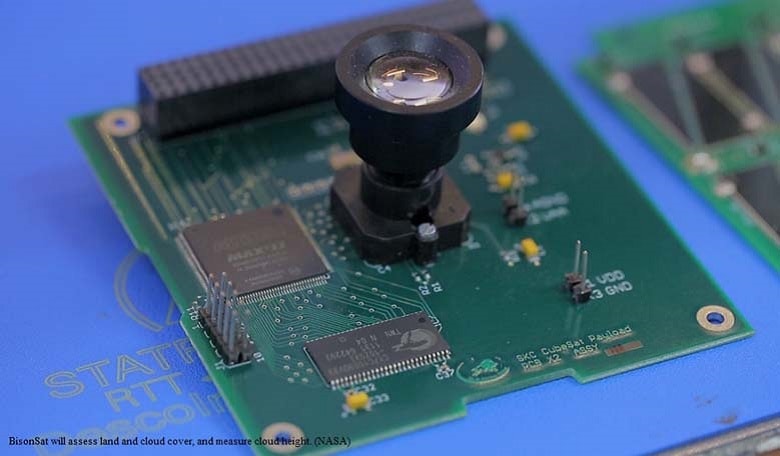BisonSat aims at developing skills in space science and engineering.
The first cubesat built at a Native American tribal college is on its way into orbit.
BisonSat, built at Salish Kootenai College in Pablo, Montana, was in the secondary payload on board the Atlas V rocket launched in California on Thursday morning.
Part of the U.S. National Reconnaissance Office’s Government Rideshare Advanced Concepts Experiment programme (GRACE), it travelled along with a spy satellite primary payload and 12 other cubesats.
The cubesat is designed mainly for educational purposes, said Tim Olson, project leader and department head of Information Technology and Computer Engineering at the college.
“The idea has been to give students an opportunity to work hands-on in designing it, building it—the process all the way through from the conceptual stage at the beginning, all the way into flight and flight operations,” he said in a NASA interview.
According to a GRACE factsheet, BisonSat will be used to “test and calculate land cover classification, cloud cover, and cloud height measurements” with the help of a light camera.
The cubesat’s construction allowed student Ryan Beagles, who designed its solar panels, to add some personal touches.
“On the top panel, I decided to put the names of all the team members, staff and students, both current and past,” he told NASA. “So all of our names [are] in space.”
While Olson was aware that the project would have a great impact on the students involved, he admitted to being surprised at the wider impact in the tribal community.
“This has been a big story in our area, and people here are really proud of what the students have.











